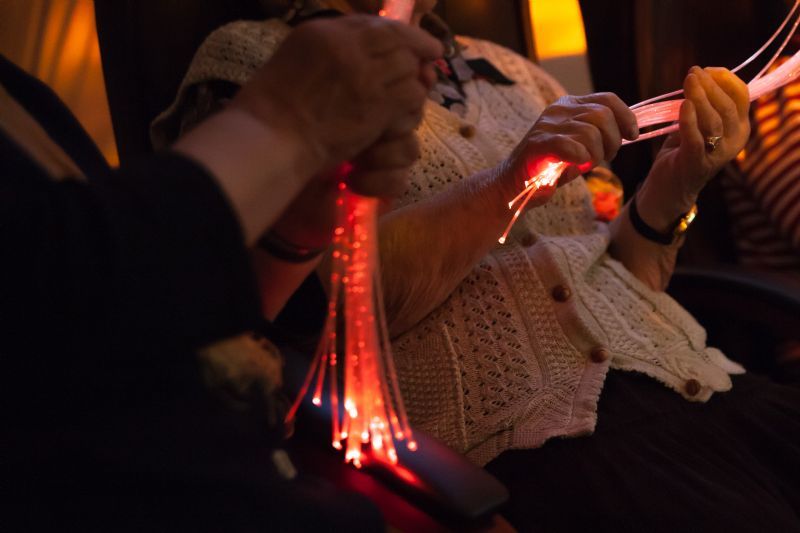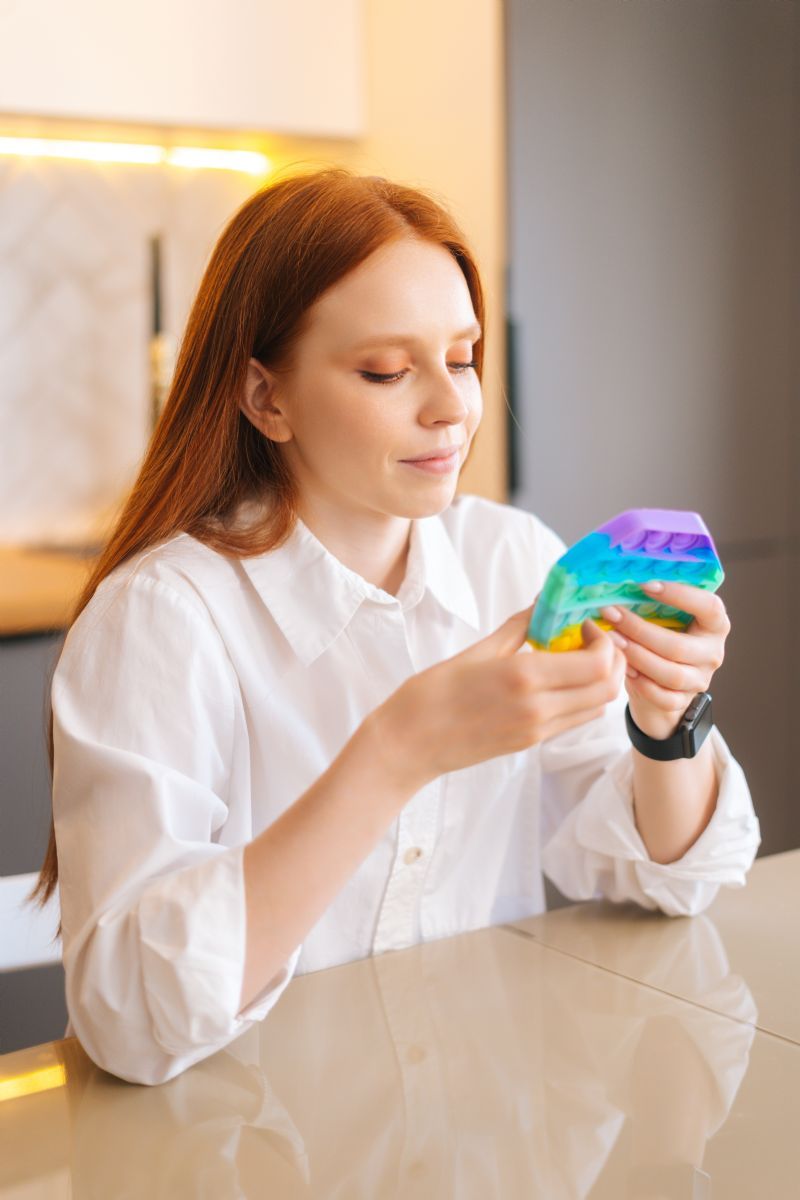 Written by Hulet Smith, OT
Written by Hulet Smith, OT
Sensory issues touch many aspects of our daily lives, affecting millions of people from around the globe. At least one in twenty people is affected by some sensory intolerance. From feeling uneasy in busy places to being bothered by certain clothing materials, these challenges are more common than we might think in both children and adults. Simple things, like the buzz from a light or a noisy room, can become sources of discomfort for some. As we recognize that people from all walks of life face these sensory challenges, you may wonder if these intolerances evolve or change as we age. Understanding and addressing these sensory issues can significantly enhance one's quality of life.

Sensory issues detected in childhood often improve as the child grows older. With early intervention, appropriate treatment, and the adoption of effective coping strategies, many children will experience reduced sensitivities as they transition into adulthood.
However, in a minority of cases, some sensory challenges can intensify with age. This intensification may be attributed to various factors like physical injuries, the natural wear and tear with aging on the body's sensory-detecting system, and significant hormonal fluctuations, such as those experienced during puberty, pregnancy, or menopause. These conditions can all play a role in exacerbating sensory sensitivities.
Sensory Processing Disorder (SPD) appears to have a genetic component, as it typically runs in families. While genetics may have a role, the precise reason remains unknown. It's also worth noting that genetics aren't the only element that influences the development or appearance of SPD.
Stress can amplify the body's reactivity to sensory stimuli, making people susceptible to feeling overwhelmed. Furthermore, the heightened sensory sensitivities exhibited in SPD can be increased when combined with other conditions like anxiety disorders and ADHD, both of which include heightened states of alertness or distraction.
Maintaining open communication with healthcare providers when assessing SPD progress is critical. Concurrently, continual self-monitoring, such as keeping a daily journal and recording feelings and coping mechanisms, provides a practical tool for tracking SPD's development over time.

Engaging with an Occupational Therapist (OT), especially one with expertise in sensory challenges, remains a vital approach when seeking improvement. These professionals, trained specifically to address sensory issues, can devise tailored treatment plans that cater to an individual's unique needs and triggers. Such personalized interventions often include various techniques and strategies, including sensory integration therapy. OTs will ensure that therapy remains aligned with the patient's specific sensitivities. Regardless of age, consulting with an OT is the most recommended route for managing and potentially alleviating sensory concerns.
The practice of self-soothing is a powerful strategy for dealing with sensory issues. Mindfulness methods such as yoga, meditation, deep breathing exercises, and grounding techniques can help people process sensory information more efficiently. These activities aid in the immediate management of overwhelming sensory responses and can promote long-term resilience when incorporated into everyday routines. The adaptability of these techniques is remarkable, allowing people to use them whenever and wherever they want, whether as a devoted daily practice or as a fast intervention during exceptionally difficult times.
 | Avana Yoga Chaise Lounge Chair View Product |
Just as behavioral treatment is important in treating mood disorders, immersing oneself in regulated sensory experiences can improve sensory processing abilities. Individuals can gradually train their bodies to understand and react to sensory inputs more effectively by exposing themselves to various sensory stimuli in a safe and organized environment. This approach may include the building of sensory rooms outfitted with unique equipment and technologies, as well as the usage of specific products such as sensory toys and weighted blankets. When used methodically, these tactics aid in desensitization and adaptation to sensory cues.
.jpg&newwidth=365&maxheight=200) | Bubble Machine Multi-Sensory Stimulate Reward Toy View Product |
While it is common advice to maintain one's overall health, it is essential when it comes to sensory processing. A healthy diet, regular exercise, and consistent, restful sleep are all core aspects that help our bodies cope with sensory stimulation. Nutritional support ensures the body receives vital nutrients that aid nerve function and sensory reception. On the other hand, exercise not only keeps the body fit but also improves blood circulation, improving our sensory systems' efficiency. Finally, getting enough sleep rejuvenates the mind and body, allowing us to be at our best when perceiving and responding to the world around us.
 | CanDo Magneciser Pedal Exerciser View Product |
Sensory experiences impact much of our perception and interaction with the world around us as we progress through life. Sensory difficulties are a daily challenge for millions worldwide, affecting children and adults. These difficulties are more than just annoyances; they have far-reaching consequences for well-being and daily activities. However, as knowledge and studies evolve, we are more equipped to recognize, manage, and possibly alleviate these sensory problems. The avenues to improvement range from professional interventions to personal practices, highlighting the significance of a comprehensive approach to sensory sensitivity management. Whether you or someone you love is dealing with sensory challenges, it's critical to realize that treatment is accessible and progress is possible. Our understanding and approaches will only improve as we learn more.
For more information and practical resources, visit us at Caregiver University. Your sensory journey is important, and there is hope and support at every step.

Co-founder/CEO of Rehabmart, Pediatric Occupational Therapist, husband, and father. Passionate about connecting special needs kids with superb nutrition, sensory integration, and complementary health strategies. Excited about Rehabmart's mission to become the premier online educational platform which empowers caregivers by spotlighting innovative devices and interventions to achieve optimal patient response and recovery.